- Home
- M. L. Buchman
Havoc: a political technothriller (Miranda Chase Book 7) Page 4
Havoc: a political technothriller (Miranda Chase Book 7) Read online
Page 4
The aircraft, now sliding fully sideways to the direction of travel, began to roll.
When the right wing slapped down onto the runway, the fuselage’s momentum was still far too great to be stopped so easily.
The wing acted as a lever of resistance.
It didn’t give.
Yet the fuselage had to roll.
It initially sheared in two places.
Immediately ahead of Row 20, at the slight weak spot due to the emergency exits directly in front of the wing, the hull’s structure gave way. At the center of the destroyed cross section, the forward economy-class galley shattered, spraying meal containers and soda cans in every direction.
The occupants of Row 20, Seats D, E, and F, were severely burned by the spray from the shattered coffee machine. They didn’t survive long enough to care when a fully loaded drinks cart slammed into them and caved in their chests.
Seat 20F gave way under the massive blow, and its seatback crushed the occupant in Seat 21F.
Aft of the wing—in the wide gap between rows 41 and 42—the fuselage sheared again, utterly destroying the four mid-cabin lavatories. Passengers for five rows both fore and aft were sprayed with ten gallons of high-pressure toilet disinfectant, staining them bright blue.
With the shearing of the fore and aft sections of the fuselage, the wing pinned the middle section of the fuselage in place. But the plane’s momentum was far from spent.
As of this moment, only the four unfortunates killed by the errant drinks cart had died.
The next several tenths of a second vastly increased the death count.
As the wing and midsection slid more and more slowly along the runway, problems were multiplying beneath the wing.
The remaining Rolls-Royce Trent 7000 engine under the right wing was being driven into the runway’s surface and ground upon by the fuselage section. The angle of the wing pressing down directly on the engine stopped the shear bolts from breaking the still-running engine safely away.
At the moment of landing gear failure, First Officer Quint Dermott’s head had been thrown against the cockpit side window hard enough that he lost his grip of the Engine Two throttle.
The seven-ton Rolls-Royce Trent 7000 remained spinning at full power.
The abuse ultimately bent the housing enough to strike the titanium alloy fan blades of the high-pressure section of the engine—spinning at over twelve-thousand rpm.
Because Captain Dani Evers had decided to trust Miranda’s estimation of pending failure and had chosen to dump all of the fuel except what was needed for the landing, there was a fire at the wing, but no explosion. No overflash of incandescent heat shot into the passenger cabin.
It didn’t matter. As the engine shattered, shrapnel plowed upward through the containment shield, then the fuselage. The most fortunate of the passengers in the starboard and center seats—who had paid for an upgrade to the more spacious midsection accommodations of Enhanced-Economy—died instantly.
Most of the rest of the midsection passengers died long before help reached them.
The forward section of the fuselage, including the cockpit—which had sheared at the galley section—rolled over the sand and clump grass parallel to the edge of the runway. Like an eighteen-foot-diameter rolling pin that was seventy feet long, it flattened coconut palms and hedge cactus for the length of an entire hundred-and-twenty-yard soccer pitch. After rolling six and a half times, it finally came to rest completely upside down.
The tail section didn’t fare as well after it broke free from the midsection. It flopped and flailed like a landed fish twice around—breaking fifteen people’s necks with the force of the battering—before the sturdy horizontal stabilizers and tail fin held the very aftmost section in place despite the remaining momentum.
This caused the rear fuselage and tail section to shear once more.
The tail section remained right side up at only a slight angle. The two stewards seated in the aftmost portion of the tail section—including the one with the sore throat from where the passenger in Seat 57A had choked him with his own tie—blinked at the tropical sunrise that hammered down on them through where the rest of the plane had been.
The rest of the rear fuselage continued rolling down the runway. The lavatory waste tanks, built into the below-decks cargo space along the shear line, were under half full. They fractured. A hundred and eight gallons of blue-immersed human waste sprayed the last six rows of seats.
In Row 56, the soaked air marshal experienced three more rolls before his section of the fuselage came to a stop. Hanging sideways, high in the air, he vomited with spin-induced vertigo, splashing the waste-coated occupants of seats C through J in his row.
The rear galley and Row 57, including Holly’s former seat, had been shredded.
6
No slashes on the wall carving out the endless line of days.
Or rather nights.
No passage of daylight told the time here.
She was merely Guest Seven.
Guest!
Her prison, her cell was below ground. It had a coolly moist atmosphere that didn’t fit with an above-ground sunbaked blockhouse.
Here it was the nights that counted.
Trained to never sleep more than four hours at a time, each night stretched on forever. Hell began when the sliver of light under her cell door went out, plunging the common area into darkness. No more well-muffled sounds slipping in with the light. Silence.
It was the CIA’s luxury prison: for prisoners so high profile that the Americans chose not to try them, because that could go public. Or execute them, which was against their oh-so-cute laws—but too dangerous to be roaming the world either.
If that was intended as a compliment, she wasn’t feeling it.
For a time, she’d thought they might be sliding days on her—sleep-cycle inversion, random time changes, and the like. It was a common interrogation technique implemented by an artificially fast cycling of days with a combination of lights and drugs. The lack of REM sleep drove individuals to desperation in a matter of days.
She had used it herself on foreign agents any number of times, back when she still had a life as a Russian Zaslon operative. It could make even the innocent beg to confess within days—it didn’t matter to what.
She’d been here a year.
But everything felt normal, just boringly mundane.
They weren’t interrogating her. Maybe they were hoping she’d simply rot away.
Not when there was a chance of getting back at them.
By day, she had an allotted ninety minutes in the common area—an exercise room and not much else. Her time slot shifted from day to day, but not too annoyingly. Off the one hall, there were nine locked doors besides her own. The only other entrance to the common area was from a set of stairs leading up to a door that belonged in a bank vault. Above it was a small red “Exit” sign that was seriously, seriously, seriously annoying.
Nothing else.
Her room was comfortable.
A good bed, high-grade sheets, comfortable chairs, even a treadmill when she’d asked for one. It let her maintain her condition with a minimum of three hours of running a day.
Because there had to be a chance of escape.
Electronic books, music, television including the news, regular meals… The high frequency of tropical ingredients was the sole indication of where this prison lay. Unless that too was a trick.
She could scroll the news feed, but send no messages. Communicate with no one except “The Host” if there was a problem—like she needed a new pair of jeans—and that only electronically.
Except for the phone.
How many times had she smashed that phone?
Each time it was simply replaced while she was out in the common area—by two armed guards in full US military combat gear to watch her while the fully-kitted technician worked. They moved with all the precision of Special Operations.
With her training, she might get pas
t them…but that vault door was a major problem. They never came through it if she was even touching the lowest step of the stairs. It always thudded shut before they descended from the upper platform.
The landline phone had no way to dial. She picked it up, and it auto-dialed her handler. That the handler was the Director of the CIA was again a compliment she could do without. Clarissa Fucking Reese never lost her cool. Never failed to answer until the time she’d called Clarissa precisely every three minutes for twenty-four hours straight.
After that, the technician installed a timer. She could only place one call a week after that.
No interrogation by Clarissa, they just…talked. World politics, power, men, and not much else. Neither of them cared about much else.
As it was her only outside contact, she’d learned to protect that.
At least until three weeks ago.
When her phone rang for the first time, it had nearly given her a heart attack. She didn’t even know it could do that.
Then the world had changed.
No identity on either side.
Simply a male voice, Interested in making a deal?
What kind of deal? Can you get me out of here?
Not likely. But I know what you are, if not who. I need some of your contacts, and your knowledge of field craft.
I have a price.
Name it.
I need to erase some people—with extreme prejudice. She wanted them dead, dead, very painfully dead.
I too need someone removed.
She thought it over quickly. That had been her specialty out in the real world.
Over the next two minutes, she sketched out the bare bones of a plan that she’d been formulating for an entire year.
No problem.
She’d resisted the urge to scream with delight, do a happy dance, or offer to fuck him blind.
I want to add one more name to your list, he’d suggested, and told her who.
I have no problem with working that in.
I’ll be in touch, then he’d been gone. But true to his word, he’d called the next night.
She’d fully reworked her plan, and they reviewed the details for hours.
Whoever he was, he was sharp. A power player with deep-level political savvy that placed him in either Moscow or the American capital.
By the end of the call, they had an agreement.
Now, I need someone able to pull it off.
Did you hear about the August 2nd parade through the streets of Moscow?
The man snorted out a laugh.
An entire class of sixty young bucks from the FSB Academy—internal security, like the American FBI—had piled into fourteen black Mercedes Geländewagen luxury SUVs and then raced through the city, shooting selfies at every chance. It had blown their usability as secret agents. The entire class had been shipped out to the wilderness of the Kamchatka Peninsula, their instructors demoted or forced to resign.
They were exactly the sort of renegades that her new “friend” needed.
She gave him the contact information.
She’d worry about getting out of here later.
For now? Today was finally the day her revenge began.
Today was judgement day for NTSB investigator Holly Harper.
7
Holly hung upside down from the ceiling that had once been the deck. Out the forward windscreen, the view offered some three meters of white sand. Nothing remained visible out any of the side windows. One escape window was immersed in the sand, the other in the center of a very prickly looking hedge cactus.
“Well, this must be Australian football rules. Too rough to be Association Footy.” Holly really would prefer to be in a soccer stadium seat at the moment. Ideally with a Four’N Twenty meat pie burning one hand and a twenty-five-ounce oil can of Foster’s lager cooling the other.
“Let’s not go out that way.”
Quint looked at his window, then back at her. “Seems like a half-decent suggestion.”
Very carefully, she tested her limbs.
Flexing her toes, she could feel them move inside her boots, which was a good sign about the integrity of her spine. Joint by joint she worked her way up until she cricked her neck just far enough to make its usual pop. The only thing that hurt was her fingers, from how tightly they’d been gripping the chair arms.
“Rugby would be my guess by the beating we just took,” Quint grunted. Then he released his seatbelt and collapsed onto the cockpit’s ceiling. “You still with us, Dani?”
“Most of me, anyway. But I think my clean flying record didn’t survive.” She made much less work of getting out of her seat than he had.
Holly had forgotten the kind of graveyard humor that kicked in when a mission had come too close to offing everyone on the team, but they’d all survived. For the moment, this disaster was three people wide and one inverted cockpit long and tall.
Holly propped a hand on the ceiling, found her balance, then released the seatbelt. She turned it into a handstand, then lowered herself to the ceiling and rolled into a cross-legged sitting position.
“Show-off,” Quint muttered. Then went to open the cockpit door. Even once he managed to disengage the safety bolts, it didn’t budge. “Something must have been bent.”
“Like your entire airplane?”
“Yep. Something like that.”
A small debris field lay at the low point, which was the curve of the cockpit’s ceiling. Water bottles, a flight case, some miscellaneous paperwork, and the butt of the air marshal’s handgun sticking out from under a sneaker. She scrabbled around for the slide and magazine, slapped the weapon together, then jammed it into the back of her waistband and pulled her shirt over it. It wasn’t the sort of thing to leave lying around. She’d have to remember to give it back to the marshal…if he’d survived—and promised not to go pointing it at her again.
In the process, she found Dani’s gun, which Holly handed to her, and a Snickers bar. When neither Dani or Quint wanted it, she tore it open and bit off a chunk.
“Never know when you’ll have time to eat again,” she mumbled at them around a full mouth. It was the old Spec Ops rule: the best place to store food and water was in your body.
Quint eyed her, snagged an energy bar from the ceiling turned into a floor, broke it in two, and handed half to Dani.
Holly stood up and opened the floor hatch, now overhead. Grabbing the rungs of the steel ladder that normally descended down into the avionics bay under the cockpit, she dragged herself hand-over-hand up it.
“Christ on a crutch but I’m out of shape.”
“Your shape looks just fine to me.”
She offered him a snort of mockery. What did he know? It shouldn’t be this hard to haul herself upward just using handholds; she was woefully out of training. Of course, she wasn’t Spec Ops anymore, which meant she didn’t train five to ten hours every day, minimum.
Maybe she could blame it on Mike. He wasn’t a runner, but he was amazingly comfortable to lie against during quiet mornings. Taz was a runner. Holly had started running with her, at least on occasion. She promised herself, now that she was alive, that she’d start getting up in time to join her…at least more often.
The avionics bay was a dark, cramped space. All of the airplane’s computers were stored here, as well as the escape hatch at the bottom, now the top, of the plane.
She helped Dani up.
While Quint was struggling to join them, Holly located the QAR. The Quick Access Recorder was mounted in the rack of backup gear. In addition to the main computers, there were two complete redundant systems.
But only one QAR.
She flipped open the cover to extract the drive.
“Hey!” Dani shouted at her in protest. “Don’t go messing with my plane.”
“NTSB, remember? My plane now. Besides, Miranda is going to want the data from this as well as the black boxes.”
“Didn’t you say she was in Seattle?”
Ho
lly looked at her watch. “Twenty-five minutes since I called. Under twenty from her island to the airport office—including the eight-minute flight in her personal 1958 F-86 Sabrejet. I’ll bet you a hundred that she’s already aloft and headed our way.”
“Australian or US dollars?” Dani released the now-overhead belly escape hatch. “We’re about halfway through the flight, you need to be specific.”
“Australian. I’m just a poor crash investigator, not some globe-trotting glamorous pilot who just crashed a three-hundred-million-dollar jet. I’ll bet you another fifty that you’re going to kick back, pour a frothy, and let someone else pick up the tab for that. Which is okay. This is just me, but I personally think we’re at the end of this flight.”
“Johnston Atoll means we’re still on US soil. It means we play with US money.” Dani slithered up and out.
Quint waved for Holly to go next, “I send all my vast riches home to my aging, sick mother.”
“How is your mum? Still making the best roo-burgers in the Northern Territory?”
“Ah! Leave it up to you to remember food at a time like this. She’s fine actually. And she’ll be twice as glad to know her boy is alive.”
Holly tried not to grimace. Her own parents had certainly not given a shit if she herself lived or died.
Holly grabbed on to the edges of the hatch as Quint put his hands around her waist to lift her up. “Don’t be getting any ideas there, bloke.”
“Too late on that one, you grew up into one fine Sheila.” He eased her effortlessly aloft into the thick tropical air. It might be only eighty degrees, but Miranda hadn’t mentioned anything about the jillion percent humidity.
Quint Dermott, globe-trotting pilot, grown up so pretty and strong. He was an interesting flash from her past. A past she’d done a fair job of ignoring until just five days ago.
Holly crawled the rest of the way out, then turned to help Quint.
She didn’t complete the gesture.
They were six meters up in the air on top of the inverted nose section. It gave them a clear view of the entire airfield.

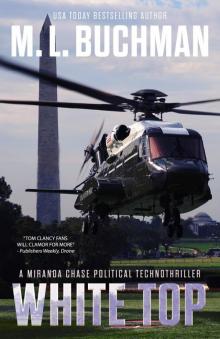 White Top
White Top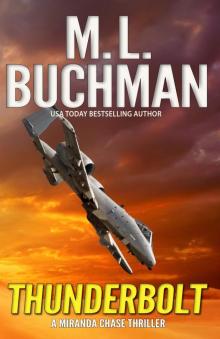 Thunderbolt
Thunderbolt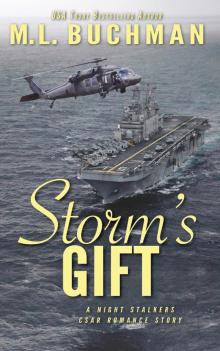 Storm's Gift
Storm's Gift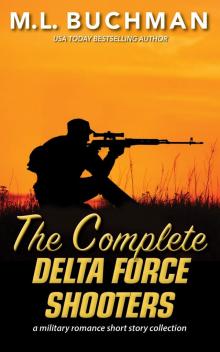 The Complete Delta Force Shooters
The Complete Delta Force Shooters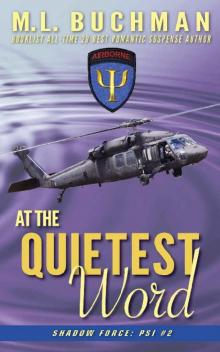 At the Quietest Word (Shadowforce: Psi Book 2)
At the Quietest Word (Shadowforce: Psi Book 2)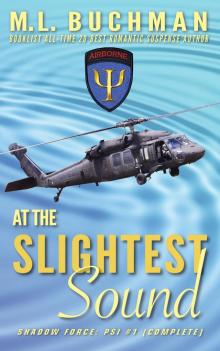 At the Slightest Sound
At the Slightest Sound Dilya's Christmas Challenge
Dilya's Christmas Challenge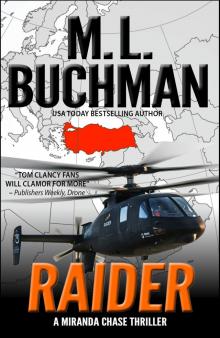 Raider
Raider Havoc
Havoc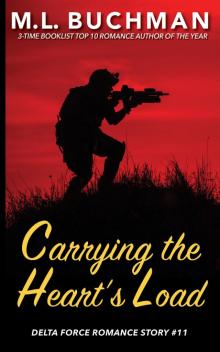 Carrying the Heart's Load
Carrying the Heart's Load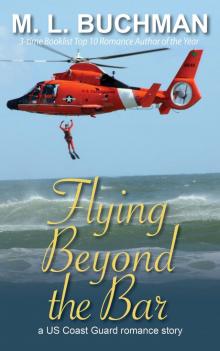 Flying Beyond the Bar
Flying Beyond the Bar Firelights of Christmas
Firelights of Christmas Where Dreams Are Well Done
Where Dreams Are Well Done Nathan's Big Sky
Nathan's Big Sky Heart of a Russian Bear Dog
Heart of a Russian Bear Dog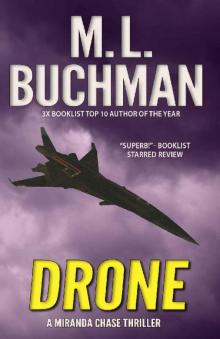 Drone: an NTSB / military technothriller (Miranda Chase Book 1)
Drone: an NTSB / military technothriller (Miranda Chase Book 1) Flower of Destiny
Flower of Destiny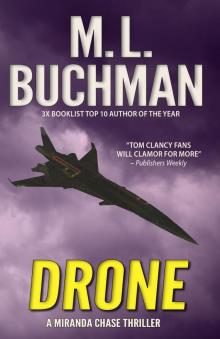 Drone
Drone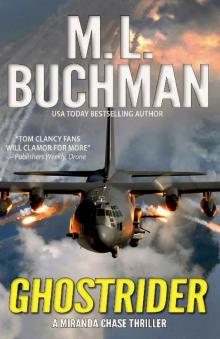 Ghostrider: an NTSB-military technothriller (Miranda Chase Book 4)
Ghostrider: an NTSB-military technothriller (Miranda Chase Book 4)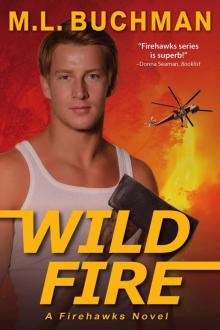 Wild Fire
Wild Fire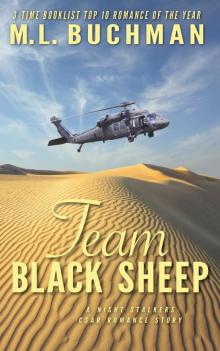 Team Black Sheep
Team Black Sheep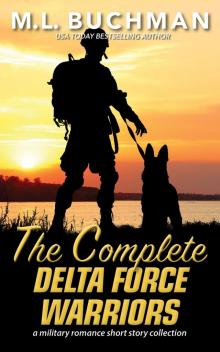 The Complete Delta Force Warriors
The Complete Delta Force Warriors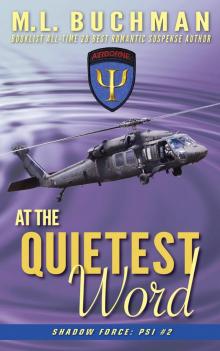 At the Quietest Word
At the Quietest Word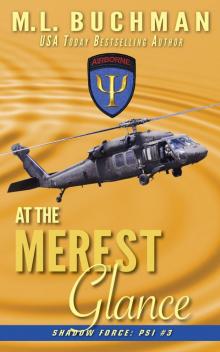 At the Merest Glance
At the Merest Glance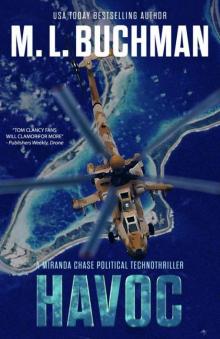 Havoc: a political technothriller (Miranda Chase Book 7)
Havoc: a political technothriller (Miranda Chase Book 7)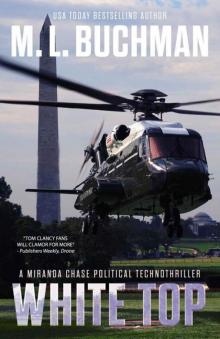 White Top: a political technothriller (Miranda Chase Book 8)
White Top: a political technothriller (Miranda Chase Book 8)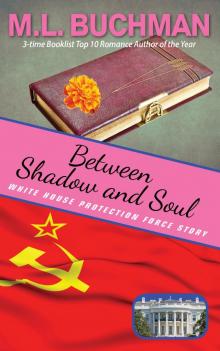 Between Shadow and Soul
Between Shadow and Soul Island Christmas
Island Christmas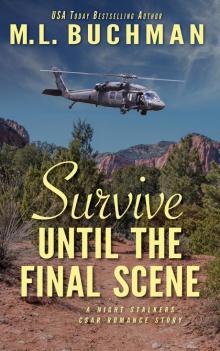 Survive Until the Final Scene
Survive Until the Final Scene Midnight Trust
Midnight Trust Return to Eagle Cove
Return to Eagle Cove Where Dreams Reside
Where Dreams Reside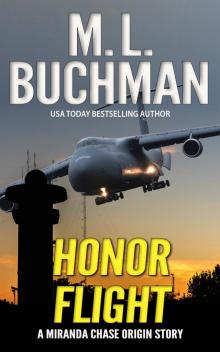 Honor Flight
Honor Flight Where Dreams Are Sewn
Where Dreams Are Sewn The Complete Hotshots
The Complete Hotshots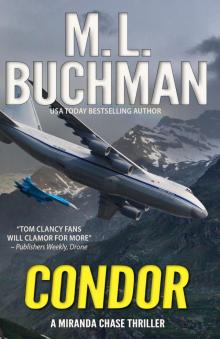 Condor
Condor I Own the Dawn
I Own the Dawn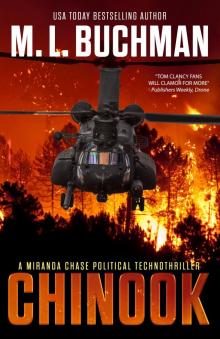 Chinook
Chinook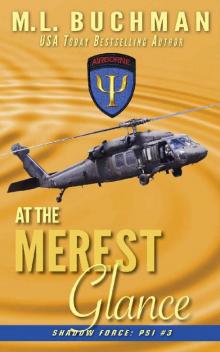 At the Merest Glance: a military paranormal romance (Shadowforce: Psi Book 3)
At the Merest Glance: a military paranormal romance (Shadowforce: Psi Book 3) Since the First Day
Since the First Day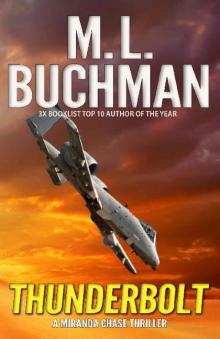 Thunderbolt: an NTSB / military technothriller (Miranda Chase Book 2)
Thunderbolt: an NTSB / military technothriller (Miranda Chase Book 2) For Her Dark Eyes Only
For Her Dark Eyes Only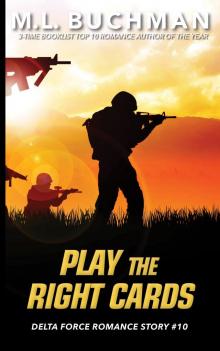 Play the Right Cards
Play the Right Cards Lost Love Found in Eagle Cove
Lost Love Found in Eagle Cove Big Sky Ever After: a Montana Romance Duet
Big Sky Ever After: a Montana Romance Duet Keepsake for Eagle Cove
Keepsake for Eagle Cove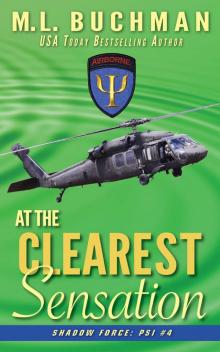 At the Clearest Sensation
At the Clearest Sensation The Ides of Matt 2015
The Ides of Matt 2015 When They Just Know
When They Just Know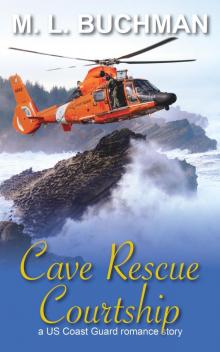 Cave Rescue Courtship
Cave Rescue Courtship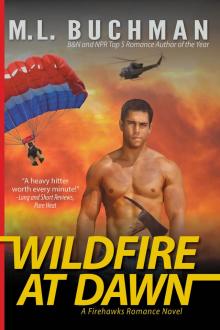 Wildfire at Dawn
Wildfire at Dawn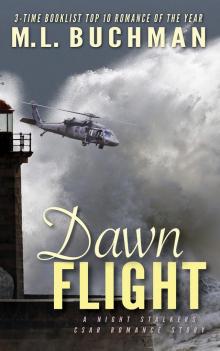 Dawn Flight
Dawn Flight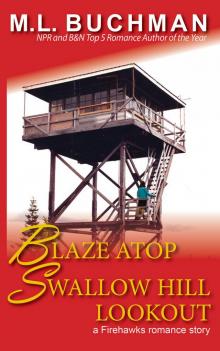 Blaze Atop Swallow Hill Lookout
Blaze Atop Swallow Hill Lookout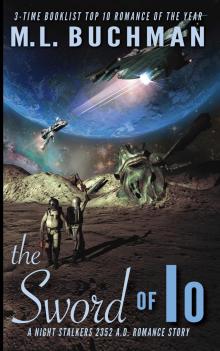 The Sword of Io
The Sword of Io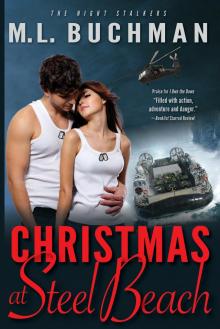 Christmas at Steel Beach
Christmas at Steel Beach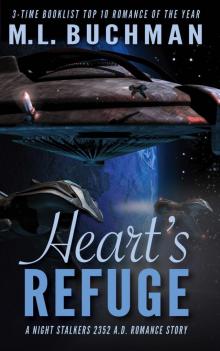 Heart's Refuge
Heart's Refuge By Break of Day (The Night Stalkers)
By Break of Day (The Night Stalkers) Kee's Wedding
Kee's Wedding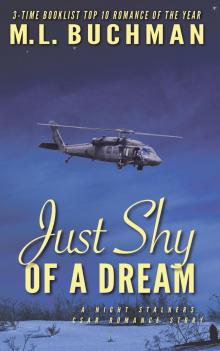 Just Shy of a Dream
Just Shy of a Dream Path of Love
Path of Love Ghost of Willow's Past
Ghost of Willow's Past Flash of Fire
Flash of Fire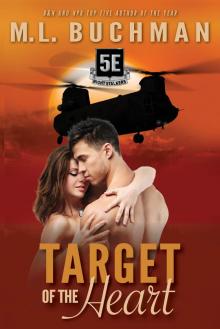 Target of the Heart
Target of the Heart Sound of Her Warrior Heart
Sound of Her Warrior Heart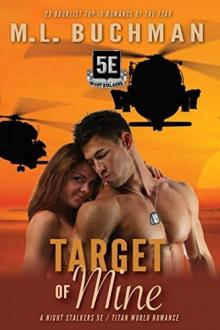 Target of Mine: The Night Stalkers 5E (Titan World Book 2)
Target of Mine: The Night Stalkers 5E (Titan World Book 2) The Complete Where Dreams
The Complete Where Dreams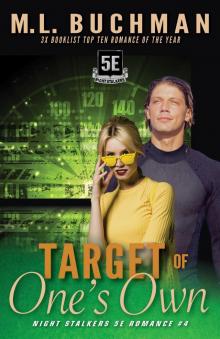 Target of One's Own
Target of One's Own For All Their Days
For All Their Days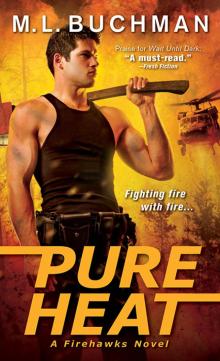 Pure Heat
Pure Heat Love's Second Chance
Love's Second Chance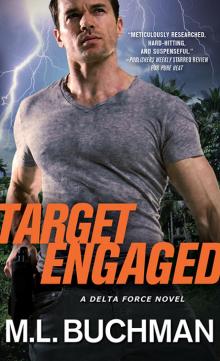 Target Engaged
Target Engaged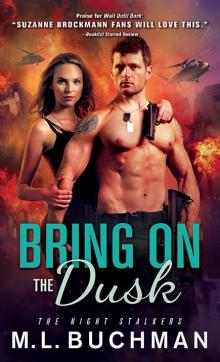 Bring On the Dusk
Bring On the Dusk Wait Until Dark (The Night Stalkers)
Wait Until Dark (The Night Stalkers) Big Sky, Loyal Heart
Big Sky, Loyal Heart Welcome at Henderson's Ranch
Welcome at Henderson's Ranch Damien's Christmas
Damien's Christmas Flight to Fight
Flight to Fight Nara
Nara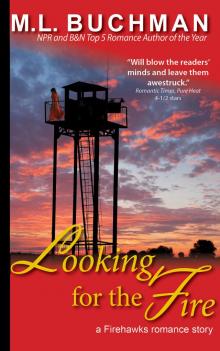 Looking for the Fire
Looking for the Fire Love Behind the Lines
Love Behind the Lines Peter's Christmas
Peter's Christmas In the Weeds
In the Weeds Christmas at Henderson's Ranch
Christmas at Henderson's Ranch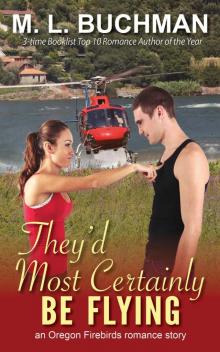 They'd Most Certainly Be Flying
They'd Most Certainly Be Flying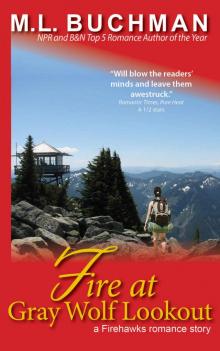 Fire at Gray Wolf Lookout (Firehawks Book 8)
Fire at Gray Wolf Lookout (Firehawks Book 8)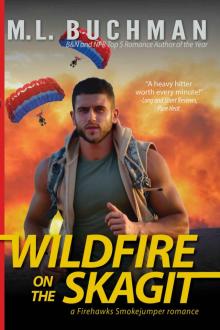 Wildfire on the Skagit (Firehawks Book 9)
Wildfire on the Skagit (Firehawks Book 9)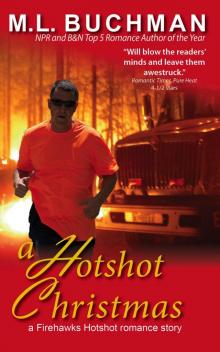 A Hotshot Christmas
A Hotshot Christmas Off the Leash
Off the Leash Where Dreams Books 1-3
Where Dreams Books 1-3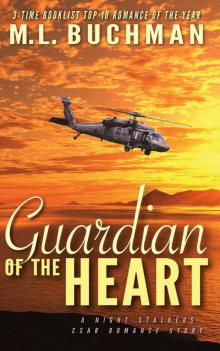 Guardian of the Heart
Guardian of the Heart The Ides of Matt 2017
The Ides of Matt 2017 Where Dreams Unfold
Where Dreams Unfold Twice the Heat
Twice the Heat Wild Justice (Delta Force Book 3)
Wild Justice (Delta Force Book 3) Flying Over the Waves
Flying Over the Waves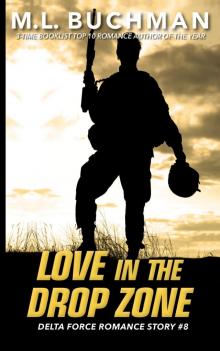 Love in the Drop Zone
Love in the Drop Zone I Own the Dawn: The Night Stalkers
I Own the Dawn: The Night Stalkers What the Heart Holds Safe (Delta Force Book 4)
What the Heart Holds Safe (Delta Force Book 4) The Christmas Lights Objective
The Christmas Lights Objective Road to the Fire's Heart
Road to the Fire's Heart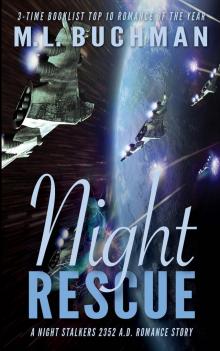 Night Rescue
Night Rescue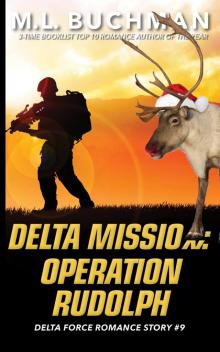 Delta Mission: Operation Rudolph
Delta Mission: Operation Rudolph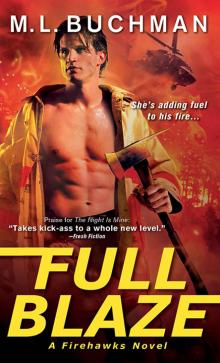 Full Blaze
Full Blaze Night Is Mine
Night Is Mine Lightning Strike to the Heart
Lightning Strike to the Heart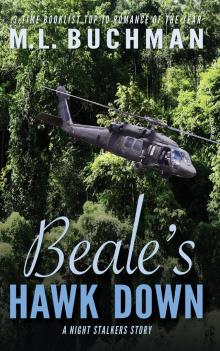 Beale's Hawk Down
Beale's Hawk Down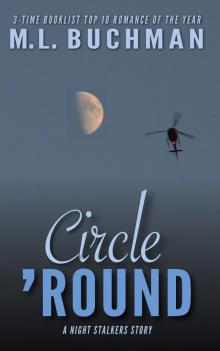 Circle 'Round
Circle 'Round Cookbook from Hell Reheated
Cookbook from Hell Reheated Zachary's Christmas
Zachary's Christmas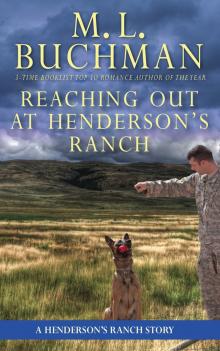 Reaching Out at Henderson's Ranch
Reaching Out at Henderson's Ranch Fire Light Fire Bright
Fire Light Fire Bright The Ides of Matt 2016
The Ides of Matt 2016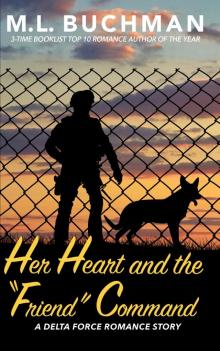 Her Heart and the Friend Command
Her Heart and the Friend Command On Your Mark
On Your Mark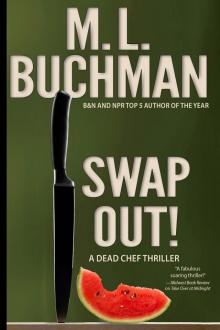 Swap Out!
Swap Out! Heart of the Cotswolds: England
Heart of the Cotswolds: England The Phoenix Agency_The Sum Is Greater
The Phoenix Agency_The Sum Is Greater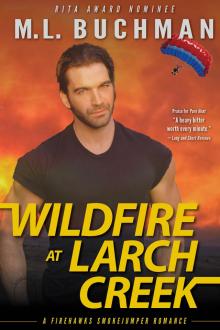 Wildfire at Larch Creek
Wildfire at Larch Creek Target Lock On Love
Target Lock On Love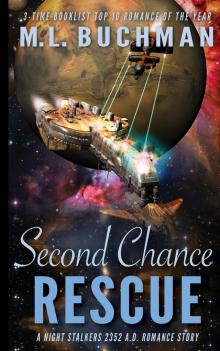 Second Chance Rescue
Second Chance Rescue Where Dreams Are Written
Where Dreams Are Written First Day, Every Day
First Day, Every Day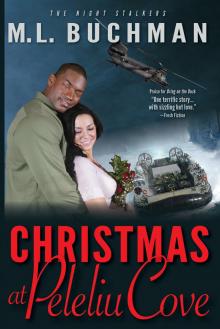 Christmas at Peleliu Cove
Christmas at Peleliu Cove Heart Strike
Heart Strike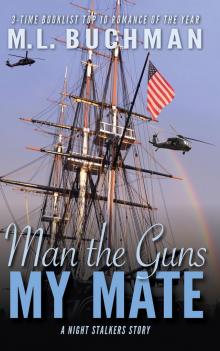 Man the Guns, My Mate
Man the Guns, My Mate Emily's Wedding
Emily's Wedding Daniel's Christmas
Daniel's Christmas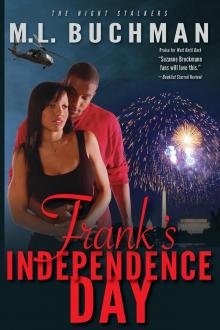 Frank's Independence Day
Frank's Independence Day The Phoenix Agency: The Sum Is Greater (Kindle Worlds Novella)
The Phoenix Agency: The Sum Is Greater (Kindle Worlds Novella)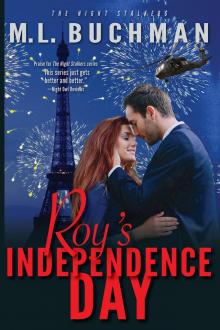 Roy's Independence Day
Roy's Independence Day